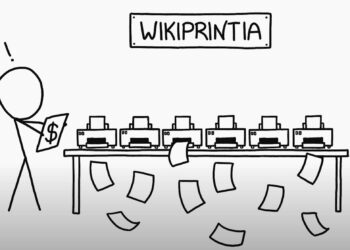
- Image via Wikipedia
In a local twist on a timeless new media paradox, GateHouse Media Inc. and the New York Times Co. have settled a linking and aggregation dispute — at least somewhat.
At issue was an approach by Boston.com (which is owned by the New York Times, Co.) to create deep local resources centered around the myriad Boston ‘burbs. To accomplish this, Boston.com scraped news and materials from the web sites of GateHouse’s local papers. At first, they scraped it all. Then, they switched to the more accepted practice of scraping the headlines and a brief excerpt — very much as Google does in Google News and in its search results.
GateHouse cried foul, charging copyright infringement and trademark violation (Boston.com used the trademarks of the GateHouse local papers without permission, the complaint alleges). At issue is the concept of “substantiality” — that is, does presenting the headlines and the lede substantially capture the value of the content? There is an argument to be made that it could.
However, the complaint also alleges that when GateHouse tried to block Boston.com from scraping its sites, Boston.com worked to circumvent these blocks.
As Dan Gillmore from Center for Citizen Media puts it:
If Boston.com’s Your Town crawlers/scrapers are going around the technological blockades, that strikes me as — at the very least — poor behavior. I don’t know whether it’s legal, but it’s not honorable. Boston.com should take the hint and stop pointing to GateHouse.
The consensus on the blogosphere, from Guilt by Association to the Recovering Journalist, is that GateHouse is making a strategic mistake by fussing about incoming links. In the link economy, content providers have to commercialize traffic, and these previews and positions in aggregations can only help.
However, there have been cases where things have turned out otherwise. In 2007, the Agence France Presse apparently secured a sweet little deal with Google after alleging the same types of things of Google News.
The economy around the value of aggregation will work itself out, but the answers aren’t clear yet. Cases like “GateHouseGate” show that even if bloggers are in charge, the value of primary reporting can’t be zero. Ultimately, there is content syndication at some level going on here.
How to keep reporters as part of the information economy when the outlets for information are changing, when aggregation is happening at all levels, is a question we’ll be facing for a long time.
Is bartering content for traffic where this linking economy ends up?
![Reblog this post [with Zemanta]](http://img.zemanta.com/reblog_e.png?x-id=840f6234-61f4-458d-b1eb-ce5c0f004e4d)


